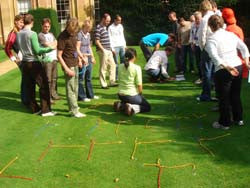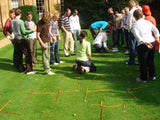WebmasterTM
Webmaster™: The Ultimate Teamwork & Leadership Challenge
Bring your team together for an engaging, hands-on experience with Webmaster™—a deceptively simple yet deeply challenging activity designed to strengthen collaboration, communication, and leadership skills. Teams must work together to assemble a complex web from metal and rope components, matching a provided design pattern through logic, experimentation, and strategic planning. Once completed, the challenge intensifies as teams must dismantle and rebuild the web against the clock, requiring clear roles, efficient resource use, and seamless teamwork.
Key Features
-
Collaborative Construction: Teams assemble a web from unique metal and rope pieces to replicate a specific design.
-
Single Solution: Only one correct configuration exists, encouraging logical thinking and trial-and-error learning.
-
Dynamic Group Sizes: Suitable for large groups—up to 30 participants—making it perfect for workshops, retreats, or classroom settings.
-
Flexible Format: The web divides into three sections, allowing multiple groups to work independently or together.
-
Customizable Challenge: Facilitators can adjust information, timing, and constraints to suit different learning objectives.
-
Real-World Skills: Focuses on leadership, role clarity, resource management, and deadline delivery.
-
Optional Complexity: Add budgets, penalties, or other elements to increase difficulty and engagement.
Why We Love It
Webmaster™ stands out as a powerful experiential learning tool that mirrors real-world project challenges. It’s not just about building a web—it’s about building a team. Participants must communicate, delegate, and adapt on the fly, all while working toward a common goal. The exercise is highly adaptable, making it ideal for facilitators seeking to develop supervisory skills, improve group dynamics, or foster leadership in any setting. Testimonials highlight its effectiveness in boosting strategic thinking and teamwork, with participants often drawing direct parallels to challenges faced in their professional lives.





